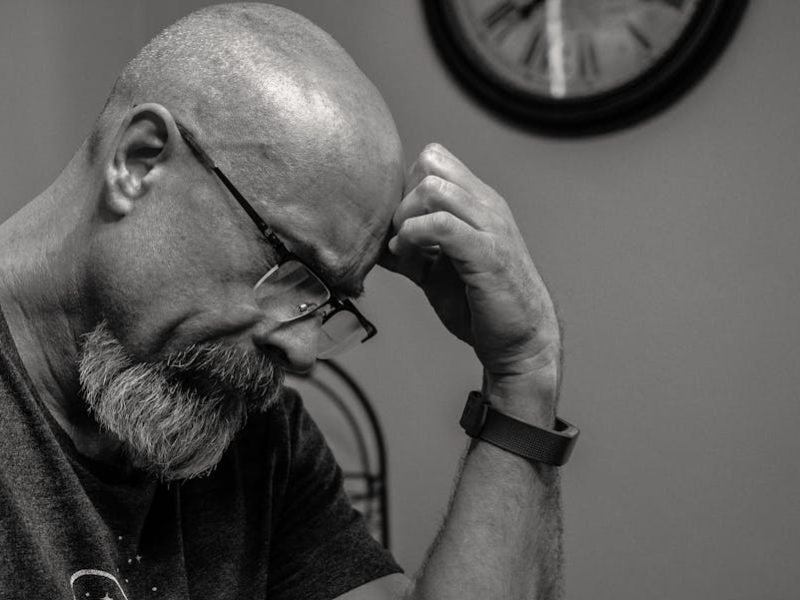Every November, moustaches sprout across faces worldwide as part of the Movember movement, not merely as a fashion statement but as a symbol of solidarity and awareness with men who are struggling with mental health issues.
What is Movember?
A combination of “moustache” and “November”, Movember was created in Melbourne, Australia, in 2003 with the aim of encouraging men to grow a moustache (mo) during the month of November to raise funds for prostate cancer charities and to promote awareness of the disease.
Since then, Movember has grown into a powerful campaign focusing not only on prostate cancer, but also on testicular cancer, men’s mental health and suicide prevention.
The silent struggle
Whether explicitly or implicitly, men are often taught to be stoic, strong and self-reliant. Phrases such as “man up” or “boys don’t cry” have long perpetuated the idea that emotional vulnerability is a weakness.
This cultural conditioning has contributed to the troubling reality that many men suffer in silence – a silence that can be deadly. Figures from the Office for National Statistics show that of the 5,717 suicides registered in England in 2024 (1), three in four were men.
In that year, the male suicide rate was 17.1 per 100,000, compared to a female suicide rate of 5.6 per 100,000, with men aged 50-54 years having the highest suicide rate of any group (26.8 per 100,000).
Figures for Wales show that 436 suicides were registered in 2024, which was 50 more than in 2023. The overall suicide rate was 15.7 per 100,000, which is an increase on 2023. The male suicide rate was 25.0 per 100,000 compared to the female suicide rate of 6.8 per 100,000.
The highest suicide rate in Wales was found among males aged 45-49 years (41.2 per 100,000).
Why are men at greater risk?
There’s no single answer, but a number of factors contribute to the higher suicide rates among men:
- Stigma around mental health: Many men feel ashamed or embarrassed to admit they’re struggling, fearing judgement or rejection.
- Reluctance to seek help: Men are less likely than women to access psychological therapies or speak to their GP about mental health concerns.
- Social isolation: As men age, their social circles often shrink and they may lack close friendships or support networks.
- Economic pressures: Financial stress, unemployment or job insecurity can weigh heavily, especially when societal expectations frame men as providers.
- Substance misuse: Alcohol and drugs are often used to cope with emotional pain, but they can exacerbate mental health issues and increase impulsivity.
Today’s data shows suicide rates remain unacceptably high. Behind these deeply concerning numbers are real people and many more devastated families, friends and communities that the statistics don’t show. (2)
Changing the conversation
Movember isn’t just about growing facial hair, it’s about growing conversations, challenging outdated notions of masculinity and encouraging men to open up, seek help and support one another.
Here are five ways we can all contribute to changing the narrative:
1. Normalise talking about feelings
Mental health should be spoken about as openly as physical health. Asking someone how they’re doing — and really listening — can make a world of difference. It’s okay not to be okay, and it’s okay to say so.
2. Encourage help-seeking behaviour
Whether it’s speaking to a GP, calling a helpline or attending therapy, seeking help is a sign of strength, not weakness. We must address the stigma that surrounds mental health services and make them more accessible and appealing to men.
3. Promote mental fitness
Just as we go to the gym to stay physically fit, we should practise habits that support mental wellbeing. This includes regular exercise, healthy eating, good sleep hygiene, mindfulness and maintaining social connections.
4. Support peer networks
Men often feel more comfortable opening up in informal settings. Initiatives like men’s sheds, walking groups or sports clubs can provide safe spaces for connection and conversation.
5. Educate and advocate
Workplaces, schools, and communities should be equipped with mental health education and resources. Training in mental health first aid, for example, can empower people to recognise signs of distress and respond appropriately.
Spotting the signs
Suicide is often preventable, but recognising the warning signs is crucial. Behaviours to look out for include:
- Withdrawing from friends, family or activities
- Expressing feelings of hopelessness or worthlessness
- Changes in mood, sleep or appetite
- Increased use of alcohol or drugs
- Talking about death or suicide
- Giving away possessions or saying goodbye
If you notice these signs in someone, don’t hesitate to reach out. You don’t need to have all the answers – sometimes just being there, listening without judgement and encouraging professional help can be life-saving.
What you can do this Movember
- Grow a Mo: Start conversations and raise funds for men’s health.
- Move for Movember: Run or walk 60km over the month; that’s one kilometre for each man lost to suicide around the world every hour.
- Host a Mo-ment: Bring people together to talk, share and support.
- Donate or fundraise: Support organisations working on the frontlines of men’s mental health.
Building a brighter future
The moustache may be a light-hearted symbol, but the message behind it is serious. Movember reminds us that men’s mental health matters – and that silence can be deadly. By fostering open conversations, supporting one another and advocating for change, we can build a future where no man feels he has to suffer alone.
Let this Movember be more than a month of moustaches. Let it be a movement of compassion, courage and connection.
Sources of help
Samaritans: Contact a Samaritan
CALM: United Against Suicide
Mind: Tips for coping with suicidal thoughts
+++
Here at MTS Psychological Health, I am passionate about your mental health and emotional wellbeing. Don’t suffer psychological issues in silence: get in touch and discover how I can help you to alleviate a range of anxiety and depression symptoms from mild to severe presentations.
We can discuss the best clinical way to alleviate your suffering, which may be either through a course of psychoanalytic psychotherapy or with EFT (Emotional Freedom Technique / Tapping) and Aromatherapy, so you can enjoy life to the full again.
References
1 – Office for National Statistics: Suicides in England and Wales: 1981 to 2024
2 – Samaritans: Samaritans response to new ONS data on suicide in England in 2024
Further reading
Movember UK: official website
Samaritans: Latest suicide data
House of Commons Library: Suicide statistics

